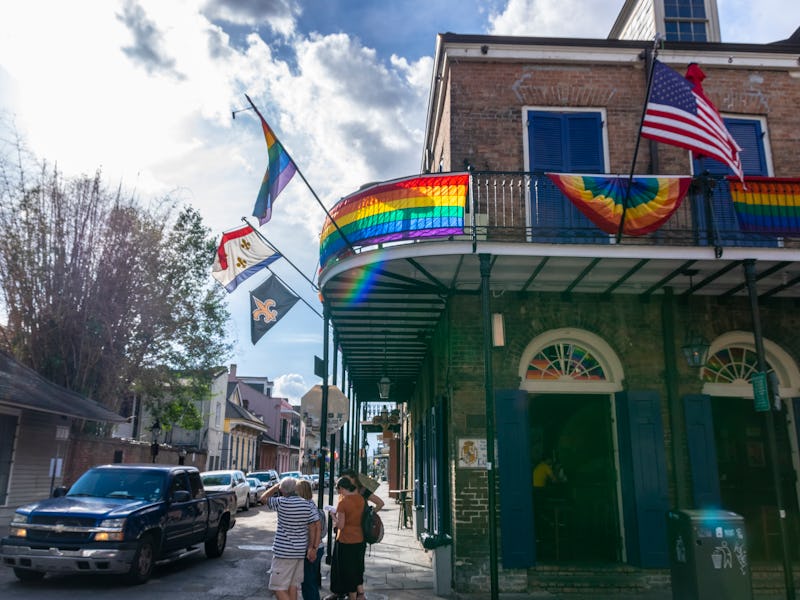Republican lawmakers are dangerously good at finding inspiration from other red states.


Louisiana’s version of “Don’t Say Gay” is even worse
One of the things that Republican lawmakers have become very good at is looking across their state’s borders, seeing what new and exciting ways their neighbors have come up with to oppress a marginalized community, and then saying to themselves “well, if they can do it, so can we!” That’s how Texas’s abominable abortion ban catapulted from the Lone Star State to Republican-held legislatures around the country, and it’s how Florida’s equally abhorrent “Don’t Say Gay” bill now seems poised to go similarly viral.
In Louisiana, a conservative majority in the House on Tuesday voted to revive a moribund iteration of Florida’s homophobic legislation, after H.B.837 failed to advance through a congressional committee earlier in the day. The maneuver, backed 55-39, now sets the bill up for a full floor vote, where lawmakers will be able to decide if they want not only to bar public school teachers, staff, or presenters from addressing “topics of sexual orientation or gender identity in any classroom discussion or instruction in kindergarten through grade eight” (well beyond the third grade threshold in Florida), but also make it illegal for those same educators to “discuss [their] own sexual orientation or gender identity with students in kindergarten through grade twelve.”
According to the bill’s sponsor, Republican state Rep. Dodie Horton, H.B.837 is designed to “protect our children from conversations that are not age-appropriate” — a laughably thin excuse for banning some teachers from even referencing “my husband” or “my wife” to students who may have already turned 18.
“Teachers influence our children and they should never teach them their own preference,” Horton claimed when the bill was initially introduced earlier this spring, adding that while she had no firsthand knowledge of there being an issue with anything covered by the bill in her congressional district, she’d heard rumors of concern in neighboring areas, and was encouraged by “several pastors” to file the legislation.
“I wasn’t aware of the need [for the bill] until I looked at some things on Twitter and Facebook,” she told ABC affiliate WBRZ in March. “It just solidified for us to protect our Louisiana children, as well.”
If the bill does pass the Louisiana House, it will likely face still opposition from Democratic Gov. John Bel Edwards, who said when the measure was first filed that “some of the bills being brought up this session do nothing to make lives better. Nothing to continue moving us forward. They only serve to divide us. And frankly, some are reminiscent of a dark past that we should learn from, not relive.”